We’ll likely never get to see Theda Bara at the apex of her powers. This is one of only three surviving films in which she had a major role, and none are from her days as a major star. This film, and A Fool There Was, are early works, and the third, The Unchastened Woman, was her final full-length film, and a failed comeback attempt after many years of inactivity. Meanwhile, in between she became one of Hollywood’s most famous actresses, and portrayed characters such as Cleopatra, Salome, and Juliet, as well as starring in provocatively titled films such as The Vixen and The Tiger Woman. Sadly, those films are lost, and what we have likely doesn’t do her justice. It would be as if audiences in 2124 were trying to understand Paul Newman’s appeal, but only had The Hudsucker Proxy, The Left Handed Gun, and Rally 'Round the Flag, Boys! to gauge his ability. They’d likely not get it.
There is always hope that a lost film will resurface. A few seconds of footage from Cleopatra were recently found by someone who bought an old projector on eBay. A piece of film that came with the purchase turned out to be a snippet from that film. What a find! The clip can be seen here. However, until any more turns up, we’ll have to accept that we have nothing of her at the height of her popularity.
As for East Lynne, well, it doesn’t make much of a case for her as the star we know her to have been. She’s one of many characters in a film with a plot so Byzantine that you’ll have no idea what’s going on unless you’ve read the source material, Ellen Wood’s novel of the same name. The book is a 784 page Victorian era soap opera with plots and subplots featuring countless characters navigating never-ending intrigue. When the movie was made, it was more or less assumed that everyone had read the book, because in 1916, most everyone had, so no effort whatsoever was made to explain anything that was happening onscreen.
I have no intention of slogging through the novel, so I read a summary of the story. Much was omitted from the film, but they kept the story of Lady Isabel (Bara) marrying Archibald Carlyle, and being duped by Captain Levison into believing her husband is unfaithful to her. She leaves him. The train she takes derails, and she’s believed to have died in the wreck. She survived, and sneaks back to her home wearing sunglasses and a wig so as not be recognized. She takes a job as nanny to her children— yes another Mrs. Doubtfire moment akin to that I recently saw in Where Is My Treasure?
Even if you watch knowing the plot ahead of time the film is still hard to follow because of how it’s paced. The film is only 75 minutes longs, the first 65 of which introduce characters and situations at a snail’s pace. Then the film shifts into overdrive and crams 2/3 of the novel into 10 minutes. According to the summary I read, about 75% of the novel (almost 600 pages) involves Lady Isabel in the guise of Madame Vine, her governess alter ego. We get about 4 minutes of her in the film. It’s a whirlwind!
Because of the crazy pacing, it’s impossible to understand what sort of chemistry exists between any of the characters. After Isabel disappears, Carlyle marries Barbara, a character about whom we know virtually nothing other than she loves Carlyle but hates his kids. Other characters show up only to vanish, never to be heard from again. At one point Levison and Richard are fighting over a girl, and… that’s it. Who does she end up with? We don’t know. She never shows up in the film again. So many characters do the same. They come, they go. Why were they ever there? Who’s to say? Not me. I’m just watching this thing.
When we do get character development, it’s hammered home with no subtlety whatsoever. Stuart Holmes, who plays the villainous Captain Levison, is poorly handled. When he’s introduced, he kicks a dog to let us know he’s not a good guy. Later, he kills a man, accidentally, but still, and then frames someone else for his crime. Just in case we still think he might be a good guy, we’re later shown a snake slithering through the grass while he seduces Isabel. They may as well have given him a foam finger that reads “Villain” to truly hammer home the notion that he’s a cad.
The real question I imagine most will have is how is Bara? My answer is, she’s quite good. She shows restraint during the emotional scenes where many of that era would have gone full ham. At the end, when one of her children is dying, she easily could have overdone it, but she kept the emoting in check, and that moderation in this early role suggests to me that her subsequent stardom was well-deserved. If only more would surface!
I have a DVD of this film, but to be honest the transfer there is so bad I found that it was easier to watch this on YouTube. The DVD is from the Silent Gems Collection which more often than not are pretty terrible. They look to me like they were downloaded off of YouTube, and then burned to DVD. The only time I’d recommend them is for the rare silent film that isn’t available anywhere else.
Here’s the best-looking version I could find. It has no soundtrack at all, so you can either watch in total silence, or run another version simultaneously and listen to the soundtrack of the second while watching the better-looking transfer below. You decide!
I’m more than a little surprised that this film hasn’t been restored, given that it’s one of precious few performances we have left of Theda Bara, but that's the state of silent cinema for you.
Next I’m watching Shoes [1916], directed by Lois Weber.

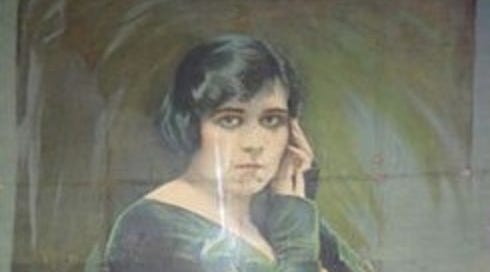






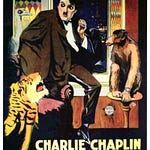
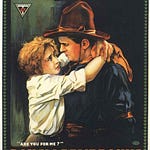
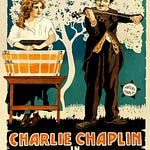

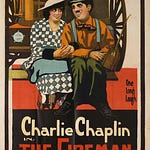

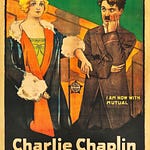
Share this post